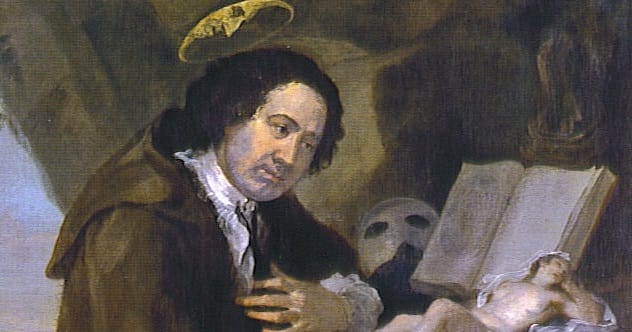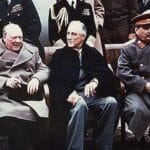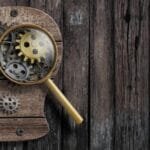History isn’t just about serious events and stoic leaders. Believe it or not, some of the most well-known figures from the past had a surprisingly playful and mischievous side. They used their wit and resources to pull off some truly memorable pranks. Get ready to see these famous personalities in a whole new light as we explore 10 incredible hoaxes they masterminded!
10. William Buckland’s Grassy Guano Graffiti
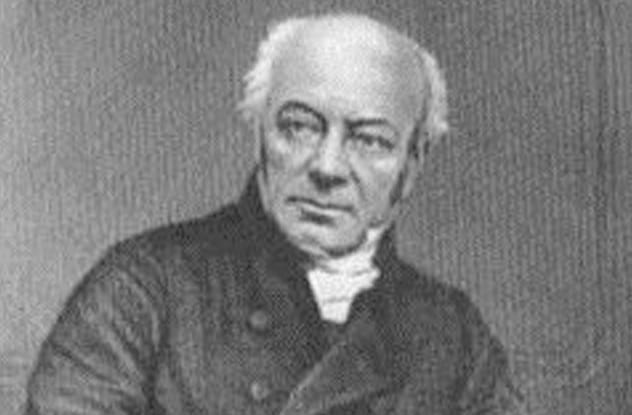
William Buckland, a famous paleontologist from the 19th century, was known for more than just his scientific work. He was quite the character, famous for his willingness to eat almost any animal. One popular, though perhaps unconfirmed, story even claims he once ate the preserved heart of King Louis XIV!
During his student days at Oxford, Buckland cooked up a very clever prank using guano, which is bat droppings. At the time, guano was new in the UK and known as a powerful fertilizer, though using it was considered a bit crude. Buckland got several buckets of it and carefully spread it on the university lawn. But he didn’t spread it randomly; he used it to spell out the word G-U-A-N-O.
The university staff removed the guano, but not before it had done its job. The nutrient-rich droppings fertilized the soil in the shape of the letters. For years afterward, the grass in those spots grew faster and thicker, making the word “GUANO” clearly visible from above – a perfect example of grass graffiti!
9. Benjamin Franklin’s Secret Pen Name: Silence Dogood
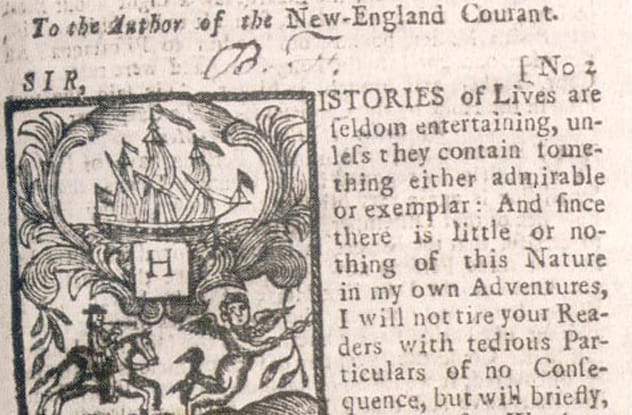
Benjamin Franklin, one of America’s Founding Fathers, often stirred up a bit of trouble and definitely enjoyed a good prank. When he was a teenager, he worked for his brother James at a newspaper called The New-England Courant. Young Ben wanted to publish letters under his own name, but James said no. So, Franklin came up with a clever plan: he decided to write as a middle-aged widow.
He named her Silence Dogood. She was described as the widow of a minister, someone who disliked bad behavior and loved virtue. In 1722, over six months, Franklin wrote 14 letters as Mrs. Dogood. He even disguised his handwriting and slipped the letters under the print shop door.
The letters became very popular! Mrs. Dogood even started getting marriage proposals from readers. No one suspected young Ben until he got tired of the charade and told his brother the truth.
8. Francis Dashwood’s Controversial Royal Court Costume
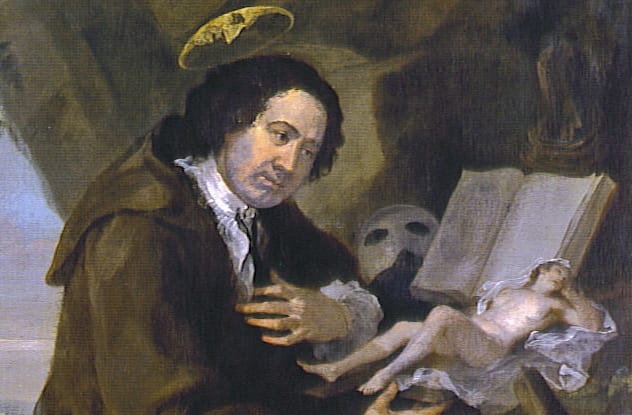
Sir Francis Dashwood was known for being quite an eccentric character. In his youth, he founded the Hellfire Club, notorious for its wild parties. He enjoyed mocking the Church, which led to rumors that he was a Satanist. He even had a portrait painted of himself parodying St. Francis of Assisi, but instead of a Bible, he was shown looking at a naked woman and an erotic book. His friend Lord Sandwich’s face was humorously hidden in his halo.
Dashwood also collaborated with Benjamin Franklin to publish a shorter version of the Book of Common Prayer, so people wouldn’t have to sit through long services in cold churches. However, one of his boldest pranks happened during his travels to Russia. He decided it would be funny to show up at a high-society event at the Russian Court dressed as Charles XII, the King of Sweden. At that time, Sweden and Russia were bitter enemies. He apparently did this to impress Tsarina Anna. While we don’t know if she was impressed, rumors of an affair between them quickly spread.
7. Bob Knight’s Imaginary Yugoslav Basketball Star
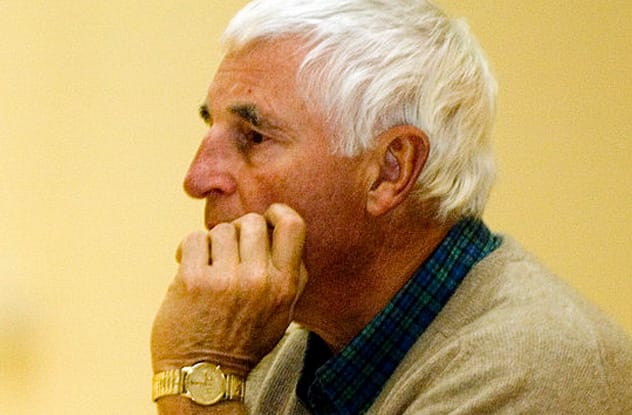
Bob Knight is considered one of the greatest college basketball coaches, having led the Indiana Hoosiers for three decades. However, he wasn’t always easy to deal with, especially with the press. In 1992, he decided to pull a prank on sports journalists and so-called insiders.
He announced a new recruit: Ivan Renko, a supposed 6’8” superstar from Yugoslavia. Knight talked on TV about how thrilled he was that Renko was joining Indiana. The catch? Ivan Renko didn’t exist. But that didn’t stop the media and sports experts.
Many commentators, not wanting to seem uninformed, started discussing Renko. Some said he was overrated, others claimed he was amazing. A few even pretended they had seen game footage of him! What made it funnier was that these experts should have known better. NCAA rules would have stopped Knight from talking about a recruit before a letter of intent was signed. Plus, Indiana didn’t even have an open scholarship for Renko.
6. Percy Bysshe Shelley’s Explosive School Days
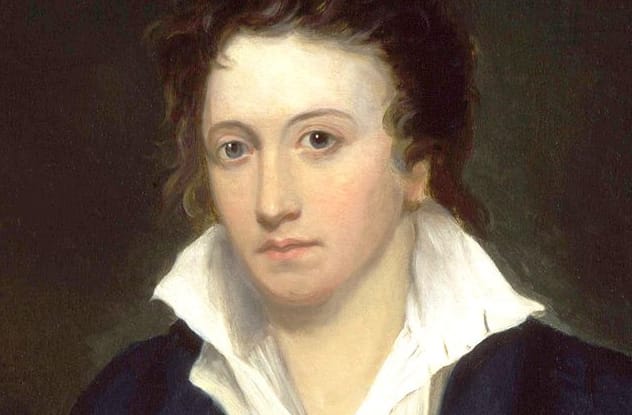
Percy Bysshe Shelley was a famous Romantic poet, part of a literary circle that included Lord Byron and his wife, Mary Shelley, who wrote Frankenstein. Before his literary fame, Shelley had a tough time at Eton school. He loved science and wasn’t interested in sports like his schoolmates, which made him a target for bullying by older students. The schoolmasters often ignored his troubles.
Shelley preferred experimenting with more exciting things like fire and electricity. Once, he nearly shocked his tutor by connecting a charged Leyden jar (an early type of capacitor) to his room’s doorknob. He also liked setting fire to old trees on campus. In one daring prank, he added gunpowder to the mix and blew up a tree, almost getting caught in the explosion himself, according to witnesses.
These actions nearly got him expelled multiple times, but his father’s influence saved him. The exploded tree became a legend at Eton, and his fellow students even wrote a poem about it. The stump of that willow tree is supposedly still there today.
5. Abraham Lincoln’s Muddy Footprints and Fiery Broom
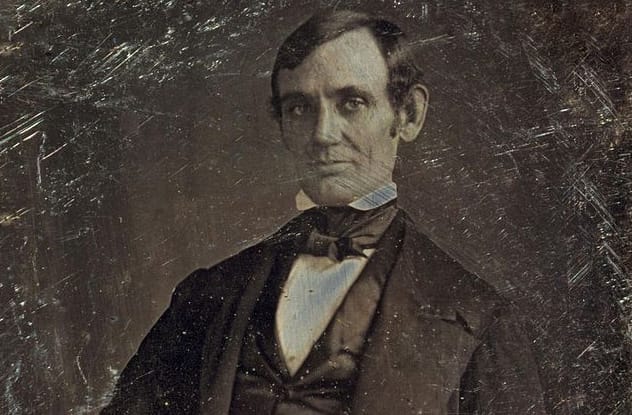
Abraham Lincoln, the 16th U.S. President, was known for his serious demeanor but also had a jovial side. He enjoyed pranking political opponents, but sometimes even those close to him became targets. One possibly legendary story from his teenage years involved his stepmother, Sarah Bush Lincoln.
Sarah often teased young Abe about his tall, lanky build, joking that he needed to keep his head clean or he’d dirty her whitewashed ceiling. One day, Abe saw two small boys playing barefoot in the mud and got an idea. He invited them inside, lifted them upside down one by one, and had them walk with their muddy feet on his stepmother’s ceiling. Sarah reportedly took it well, though Abe had to whitewash the ceiling afterward.
Another story tells of a prank in Monticello, Illinois, that nearly set a hotel on fire. While staying at the Tenbrook Hotel, Lincoln dared some kids to heat an inflated pig bladder (an early balloon) in the fireplace. It popped, scattering hot coals everywhere. Lincoln offered to sweep up, but then accidentally set the broom on fire!
4. Joseph Mulhattan’s Monkey Business in the News
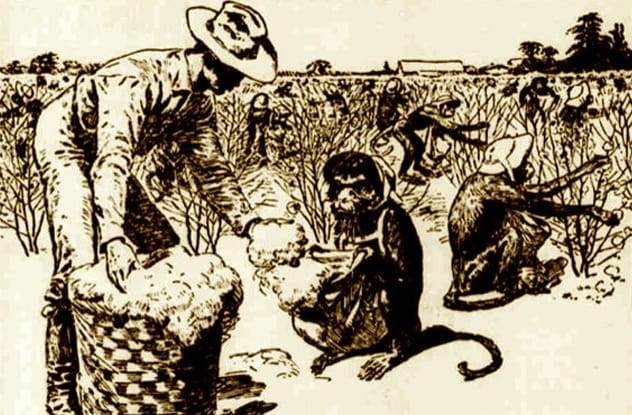
Joseph Mulhattan was a salesman by profession, but his real passion was tricking newspapers with wild, made-up stories. He earned nicknames like the “Prince of Liars” and the “liar-laureate of the world.” He called his hoaxes “novelistic journalism” and never made money directly from them, though his storytelling skills made him a popular salesman.
Mulhattan created many hoaxes, though some published in small local papers are now lost. His more famous pranks included stories of a meteorite landing in Texas, a little girl carried away by balloons, and George Washington’s body being found petrified and put on display.
Perhaps his most successful hoax was a report about a Kentucky farmer who had trained monkeys to pick hemp in his fields. The Kentucky Register published the story, even adding an editorial about how this could impact human labor. Soon, major newspapers like The Times and the New York Times picked it up, criticizing the farmer for threatening the jobs of human workers.
3. Thomas Edison and the Imaginary Food Creator
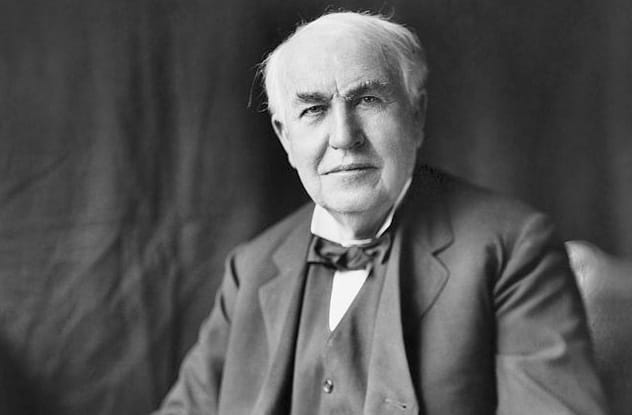
When Thomas Edison was at the peak of his fame, newspapers constantly reported on his latest inventions. People started to believe Edison could invent almost anything. A journalist for the New York Daily Graphic decided to test this belief.
On April 1, 1878 (April Fools’ Day!), the journalist published a story about Edison’s newest invention: the “Food Creator.” This machine supposedly made food from just air, water, and earth. It was hailed as an invention that would end world hunger. Many readers and other newspapers believed it. The Commercial Advertiser, for example, wrote an editorial praising Edison’s genius. The Daily Graphic later reprinted this editorial with a smug subtitle: “They Bite!”
The April 1st publication date should have been a clue. Also, the original story ended with the narrator waking up, revealing it was all a dream. Still, Edison received many inquiries about the food creator. He was amused by the prank, calling it the “most ingenious hoax I have ever seen,” and even played along with reporters who asked him about it.
2. Harvey Stromberg’s Secret MOMA Art Exhibition
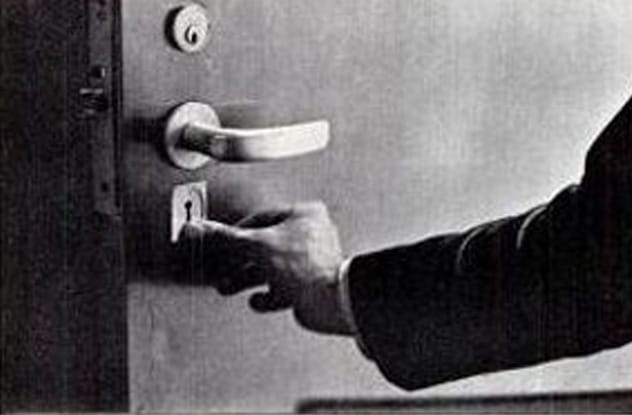
For most artists, having their work shown at the Museum of Modern Art (MOMA) in New York is a career highlight. It certainly boosted artist Harvey Stromberg’s career in the 1970s. The amazing part? Nobody at MOMA even knew about his exhibition!
For weeks, Stromberg pretended to be an art student. He spent hours each day inside MOMA with a notepad, but instead of studying the art, he was taking detailed notes and photos of ordinary items: air vents, bricks, light switches, floor tiles, and keyholes. He used these to create life-sized stickers of these items, calling them “photo-sculptures” or trompe-l’oeil (trick of the eye). These 2D stickers looked like 3D objects.
Next, he carefully placed his stickers over their real-life counterparts. He did this one by one to avoid getting caught. Museum staff occasionally found some, especially the floor stickers that came loose after cleaning, but Stromberg would simply replace them. Some of his sticker art remained in place for two years until Stromberg decided to hold an “official” opening for his secret project.
1. The Earl of Hardwicke’s Ancient Newspaper Hoax
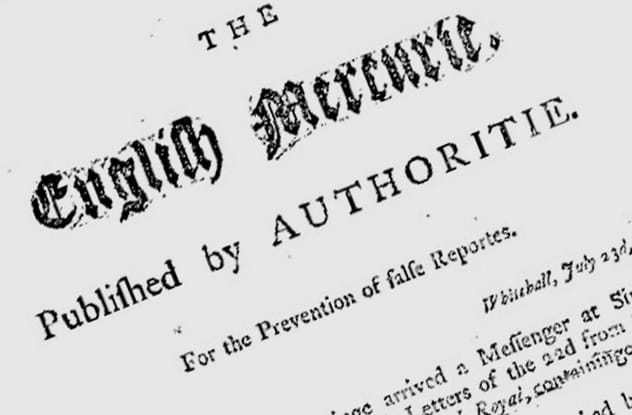
Few pranks have had such a long-lasting impact as this 18th-century hoax, which is still sometimes mistaken for fact today. Philip Yorke, the Second Earl of Hardwicke, and his historian friend Thomas Birch, created the English Mercurie. For decades, people believed this publication was the very first English newspaper.
They created it in the 18th century, long after actual English newspapers were common. However, they dated the English Mercurie to July 23, 1588. It was made to look like an Elizabethan-era newspaper detailing the English fight against the Spanish Armada. They produced five issues (three printed, two handwritten), and they were so convincing that everyone thought they were genuine 200-year-old newspapers.
Much of the blame for the hoax’s success goes to historian George Chalmers. He was completely fooled and declared the English Mercurie the first newspaper of its kind in his writings, including a popular 1794 biography. It took another 45 years after Chalmers’s claims for someone to finally uncover the hoax and identify the long-dead Earl as the prankster.
These stories show that even the most respected and serious individuals in history had a sense of humor and a talent for mischief. Their pranks, ranging from clever wordplay to elaborate deceptions, remind us that a little fun can make a big mark on history.
Which of these historical pranks did you find the most amusing? Do you know any others? Share your thoughts in the comments below!


